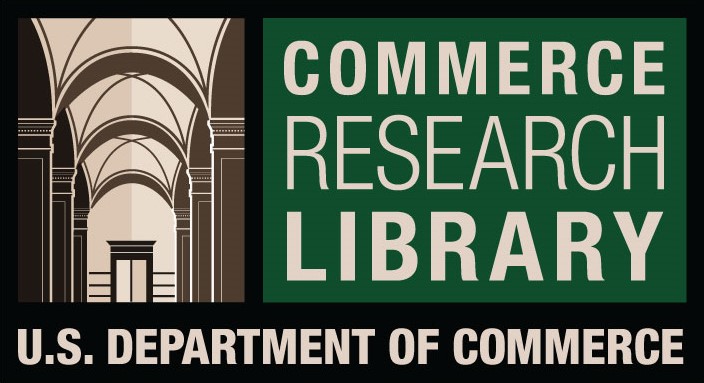Mobile applications and its impact on the Muslim family in the view of Islamic Jurisprudence
DOI:
https://doi.org/10.61841/sqv82x08Keywords:
Mobile applications,, Technical developmentAbstract
Praise be to God, may God bless him and grant him peace, and humiliate everything with destiny and fate, May God bless him and grant him peace. Technical development has prevailed in all aspects of life, so I feel it in all our daily movements, in addition to the fact that technologies have become available to everyone through those applications that are specially designed for mobile phones, and some of them are known to be useful, such as applications for public information or religious information.
Downloads
References
1. The impact of mobile applications on social networking sites on learning and teaching the Noble Qur’an for students of Thebes University and their direction towards it, by: Alaa Al-Jeraisy, Taghreed Al-Rahili, and Aisha Al-Omari, The Jordanian Journal of Educational Sciences, Volume (11), No. (1), dated 15 January2015.
2. Provisions of unlawful money and the rules of usufruct and disposition in Islamic jurisprudence, by Dr. Abbas Ahmed Muhammad Al-Baz, publisher: Al-Nafees, first edition, 1418 AH / 1998AD.
3. Asna Al-Mtalib in Sharh Roud Al-Talib, Al-Ansari, Publisher: Dar Al-Kitab AlIslami
4. Adwaa Al-Bayan in Edah the Qur’an, authored by: Sheikh: Muhammad Al-Amin Al-Shanqeeti, publisher: Dar Al-Fikr, Beirut, Lebanon, 1415AH.
5. Informing the signatories about the Lord of the Worlds, by Ibn Al-Qayyim, publisher: Dar Ibn Al-Jawzi for Publishing and Distribution, Kingdom of Saudi Arabia, first edition, year 1423AH.
6. The necessity of the straight path is a violation of the people of Hell, by Ibn Taymiyyah, by: Nasser al-Aqil, Dar Alam al- Kutub, Beirut, Lebanon, 7 edition, 1419AH.
7. Bada'i Al-Sanayi, publisher: Dar Al-Kitab Al-Arabi - Beirut, 1982.
8. The impact of the use of mobile phones on the values of the Algerian family «A field study on a sample of the families of the city of Umm Al-Bouaghi», authored by: Iman Maarouf Asma'a Bouanan, and Khawla Baladhan, a supplementary note to obtain a master’s degree in media andcommunication sciences, specialization: and public relations, college Social and Human Sciences, Department of Humanities, People's Democratic Republic of Algeria, Ministry of Higher Education and Scientific Research - Arabi BinMahdi. University, Umm Al-Baqi University, academic year 2014AD / 2015AD.
9. Spying by photography in Islamic jurisprudence, by the researcher: Amal Jabr Abdel-Khaleq Shtaiwi, a thesis submitted to complete the requirements for obtaining a master’s degree in Islamic jurisprudence, from the College of Sharia and Law at the Islamic University of Gaza, in the year 1432 AH /2011AD.
10. Espionage and its provisions in Islamic Sharia, authored by: Muhammad Rakan Al-Daami, publisher: Dar Al-Salam - Cairo, second edition, year 1406 AH / 1985AD.
11. Islamic criminal legislation compared to positive law, written by: Abdel Qader Odeh, publisher: Dar Al- Kateb Al- Arabi, Beirut.
12. Enlightening interpretation, by Dr.: Wahba Al-Zuhaili, publisher: Dar Al-fikr Almoaser - Damascus, second edition, 1418AH.
13. Communication Technology and Society Issues and Problems, by: Sharif Darwish Al-Laban, Publisher: Dar Al- Alem Al-Arabi, Cairo, Sharif Darwish Al-Laban, First Edition.
14. Al-Bajrami's Hashia to Shareh Al-Manhaj, by Sheikh Al- Birjarmi, publisher: Al-Halabi Press, without edition, publishing date, year 1369 AH /1950AD.
15. The role of the family in the socialization of the child, written by: Farooq Amin, Emirates University, publisher: The Association of Socialists in Sharjah, volume 6 / number 24, and research in pages145-155.
16. The book: Al-Thakhira Authored by: Abu al-Abbas Shihab al-Din Ahmad bin Idris bin Abd al-Rahman al- Maliki, famous for al-Qarafi (died: 684 AH) Investigator: Muhammad Bu Khubzah Publisher: Dar al-Gharb al-Islami - Beirut Edition: First, 1994.
17. The flow of jars flowing over the flower gardens Authored by:MuhammadbinAlibinMuhammadbinAbdullahAl- Studies, Publisher: King Saud University, Volume 20 / No. 1, 2008AD.
18. Mukhtar Al-Sahah, by Al-Razi, publisher: Library of Lebanon Publishers - Beirut, new edition, 1415 AH / 1995 AD, by: MahmoudKhater.
19. Criminal Responsibility for Users of Social Media Networks A Comparative Study, Written by the Adviser: Ayman bin Nasser bin Hamad Al-Abbad, Publisher: Law and Economics Library - Riyadh, First Edition, 1436 AH / 2015AD.
20. The features of suicide theory in Islamic jurisprudence, authored by: Dr. Abdullah bin Hamad Al-Ghatimel, who is a researcher for the Arab Journal for Security Studies and Training - Volume 15 - No.30
21. Glossaryoftermsandjurisprudence,authoredby:Dr. Shawkani al-Yamani (died: 1250 AH) Publisher: Dar Ibn Hazm Edition: First Edition Number of parts
22. Sharh Al-Zarqani Publisher: Dar Al-Kutub Al-Alami - Beirut, 1411AH.
23. Edition: without edition and withoutdate.
24. The Fiqh Dictionary, Written by: Saadi Abu Jib, Publisher: Dar Al-Fikr. Damascus - Syria, second edition 1408 AH / 1988AD.
25. Kifaia Al-Nabih in Sharh Al-Tanbih, written by: Ibn Al- Rifa'a, by: Majdi Muhammad Surur Basalum, publisher: Dar Al-Kutub Al-Alami, first edition, year 2009AD.
26. Lisan Al-Arab Author: Muhammad Bin Makram Bin Ali, Abu Al-Fadl, Jamal Al-Din Ibn Manzoor Al- Ansari Al- Ruwa’afy Al-Afriqi (died: 711 AH) Publisher: Dar Sader - Beirut Edition: Third - 1414AH
27. Forbidden money owned and spent, and disintegration from it, written by: Abdulaziz bin Omar Al-Khatib, King Saud University Journal - Educational Sciences andIslamic
28. The Intermediate Dictionary, authored by: a group of researchers: Ibrahim Mustafa - Ahmed Al-Zayyat - Hamed Abdel Qader - Muhammad Al-Najjar, Publisher: Dar Al- Dawa - Investigated by: The Arabic LanguageAcademy.
29. Al-Mughni, by Ibn Qudama, publisher: Dar Al-Fikr - Beirut, first edition, year 1405AH.
30. The end of the needy to explain the curriculum, for Al- Ramli, publisher: Dar Al-Fikr, Beirut, the last edition, 1404 AH / 1984AD.
31. End of the needy to explain the curriculum Author: Shams al- Din Muhammad ibn Abi al-Abbas Ahmad ibn Hamza Shihab al- Din al-Ramli (died: 1004 AH) Publisher: Dar al-Fikr, Beirut Edition: Last Edition - 1404 AH / 1984CE
32. Mobile phone and its effect on family life «A social field study in the city of Diwaniya», the researcher: a group of researchers, a research submitted to the Council of the DepartmentofSociology,CollegeofArts,whichispartofobtaining a Bachelor of Arts degree in sociology, in the year 2018AD.
33. Our Contemporary Reality, written by: Muhammad Qutb, publisher: Al-Madina Foundation - Jeddah, in the year 1408 AH.
34. Modern means of communication and their impact on family relations, authored by: Dr. Abdullah Abdel Moneim Abdel Latif Al-Osaily, Judge: Mazen Khalil Mohammed Al- Jabrini, and this research is presented to the conference that will be held at “An-Najah University”, on Thursday, 4/24/ 2014, entitled: Modern media and its impact on society ", 1432 AH / 2014CE.
Downloads
Published
Issue
Section
License

This work is licensed under a Creative Commons Attribution 4.0 International License.
You are free to:
- Share — copy and redistribute the material in any medium or format for any purpose, even commercially.
- Adapt — remix, transform, and build upon the material for any purpose, even commercially.
- The licensor cannot revoke these freedoms as long as you follow the license terms.
Under the following terms:
- Attribution — You must give appropriate credit , provide a link to the license, and indicate if changes were made . You may do so in any reasonable manner, but not in any way that suggests the licensor endorses you or your use.
- No additional restrictions — You may not apply legal terms or technological measures that legally restrict others from doing anything the license permits.
Notices:
You do not have to comply with the license for elements of the material in the public domain or where your use is permitted by an applicable exception or limitation .
No warranties are given. The license may not give you all of the permissions necessary for your intended use. For example, other rights such as publicity, privacy, or moral rights may limit how you use the material.









